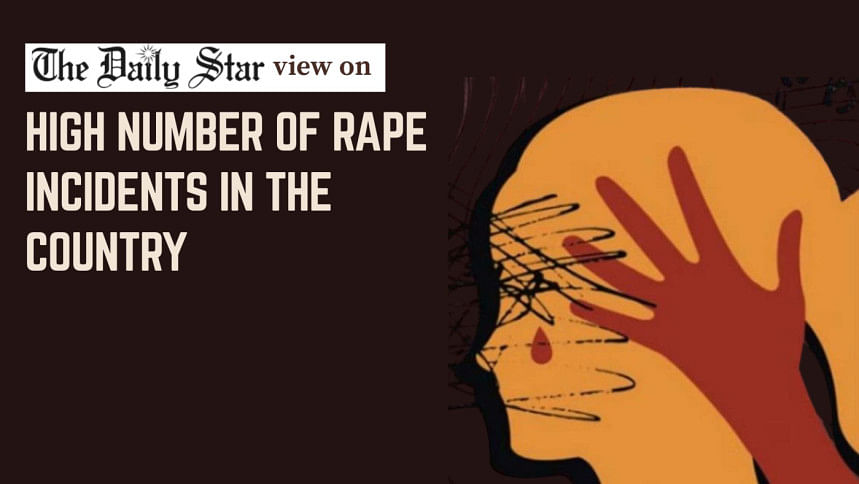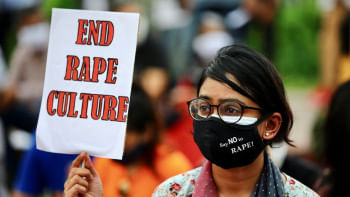Bhola rape continues the cycle of impunity

We are extremely concerned about the rape incidents being reported across the country. The frequency, brutality, and increasingly multifaceted nature of these incidents reflect not only the deepening breakdown in law and order but also a dangerous erosion of moral values. Just the other day, we talked about the horrific treatment of a woman in Cumilla's Muradnagar that showed the pitfalls of widespread exposure, triggering both outrage and unnecessary controversies. And now, we are again forced to process an incident in Bhola that shows the failings of political safeguards against crimes. The fact is, rape incidents are becoming too frequent for us to treat them as isolated occurrences or mere law enforcement failures.
These incidents underscore broader social, political, and institutional dysfunctions that allow such crimes to recur. In the latest case, the victim found herself in a situation that, like the Cumilla incident, may appear complicated on the surface, but none of that should overshadow the fact that a woman was raped—this alone should demand the full weight of justice. According to our report, the incident occurred on Sunday after the victim's husband was "lured" to the house of his third wife, where he was held captive and tortured for two days apparently for separation money. The third wife, now under arrest, allegedly orchestrated the incident with the help of her associates, who belong to the local units of three BNP-affiliated organisations. And on Sunday, the victim arrived at the scene to rescue her husband, only to be locked inside at one point and gang-raped.
Regardless of the surrounding personal or relational dynamics, the crime remains as unacceptable as any other. What is notable in this case is the involvement of criminals attached to BNP-affiliated organisations, namely Sramik Dal, Chatra Dal, and Jubo Dal. It is no secret that the culture of impunity that enables repeated rape incidents in the country has long been fuelled by such political affiliations and protections. While it is a welcome step that Sramik Dal and Chatra Dal have expelled the accused concerned, these actions are reactive and often driven by public pressure rather than a genuine commitment to prevent crimes. We have seen similar reactions during Awami League's tenure as well, but rarely have they given way to effective intra-party disciplinary action to deter crimes by errant activists. Another pressing concern is the menace of misinformation and viral content on social media that often distracts from the real cases, as seen after both the Bhola and Cumilla incidents.
These issues demand as much scrutiny as the crimes themselves. Going forward, we urge the authorities to take strict measures that can effectively prevent rape incidents. If we really want to reverse the current trend, political parties also must take genuine preventive steps, while the justice system must deliver timely punishments. The state, political parties, and society at large must recognise that, without collective action to address these crimes, the cycle of violence against women will only continue.


 For all latest news, follow The Daily Star's Google News channel.
For all latest news, follow The Daily Star's Google News channel. 







Comments